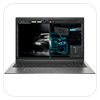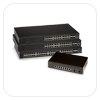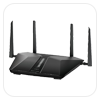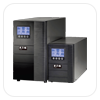
No matter what industry you are involved in, it is essential that you have a robust and trustworthy network, since your operations are hindered by bottlenecks, lagging bandwidth, or spotty connectivity, it can eliminate your productivity, frustrate your staff, and ultimately hurt your bottom line. The purpose of a firewall may be widely regarded as a security protector that actively guards against cyber threats, but without recognition, a good hardware firewall could also be a strong enhancer of business network performance.
For many small and medium-sized businesses (SMBs), it is common to answer network security needs with the basic firewall capabilities available through an internet router or software-based firewall application on devices. Even though they offer some protective levels, they usually cannot adequately meet the needs of an expanding business network, and therefore, might serve more as a performance limiter rather than an enabler. This is where a hardware firewall appears, with associated performance benefits that an SMB might enjoy, and feel productive.
Let’s dig into the unique examples of how a hardware firewall can assist any business network.
-
Dedicated Processing To Manage Network Traffic
As opposed to a software firewall, which runs together with multiple other processes/tasks on a computer (or server), a hardware firewall is a dedicated appliance that manages and secures network traffic. The hardware firewall is equipped with processors, memory, and hardware components that are dedicated only to inspecting and ensuring that the filtering of the network packets is executed by the hardware firewall at optimal speeds.
Unlike a software firewall, which will be taxed to run deep packet inspection, intrusion prevention, and VPN termination processes, a hardware firewall will not tax your servers/workstations processing powers in off-loading these CPU-heavy protection processes; therefore, the hardware firewall will release your computers and servers processing resources to do their part for network/app performance effectively.
Suppose your office has several employees accessing cloud applications, engaging in transferring files, and video conferencing with a customer, all at the same time. The software firewall on a shared server will be challenged to keep things flowing as expected on the network, and the applications will be running slowly for all of the workers in the office. A hardware firewall can easily segment that traffic with dedicated processing to manipulate the performance for each of the applications.
-
More Efficient Traffic Filtering and Route Optimization:
Hardware firewalls use advanced filtering techniques and hardware acceleration to filter and route the traffic coming into a network. They are able to rapidly scan a packet header, apply a filtering rule set, and route a valid packet further to its destination with minimal delay. Because this method reduces the delay that is incurred in managing network traffic, it helps achieve quicker data transfer speed along with reduced latency.
When handling traffic intelligently, a hardware firewall can often prevent network congestion and prioritize critical business applications. For instance, a hardware firewall may have Quality of Service (QoS) settings that allow VoIP traffic to be prioritized so that individuals can communicate clearly on a voice call during high utilization periods. A level of fine-grained control over how packets are moved through a network is simply not achievable with basic firewalls, consumer-grade router firewalls, or software-based firewalls.
-
Supporting Concurrent Connections:
Modern business networks typically have a significant number of concurrent connections in the network simultaneously, as employees access a variety of internally and externally provided resources and services. Basic-level firewalls, particularly firewalls residing in consumer routers, sometimes struggle to support the volume of connections and can even start dropping connections or degrading their performance.
Hardware firewalls allow for the ability to handle many more connections effectively. They have a bigger, better-built firewall that allows for more efficient and better-performing software capacity. This is very important if your company regularly runs major transactional operations and relies on cloud applications and online collaborations, including e-commerce.
-
Network Segmentation for Better Efficiency:
A number of advanced hardware firewalls allow for network segmentation, enabling you to split your network up into networks or zones that are isolated from one another. Segmentation not only increases security by reducing the damage of a breach, but it can improve performance as well. It can be used to control the traffic between departments or types of devices in order to eliminate broadcast traffic cluttering the total network and bandwidth.
For example, you may want to segment your guest Wi-Fi and separate it from your internal corporate network so that guest traffic does not impact the performance of your crucial business applications on the internal network. Similarly, segmenting your IoT devices could block IoT device bandwidth usage from more critical systems.
-
VPN Performance and Stability:
For an enterprise with remote workers or multiple offices, Virtual Private Networks (VPNs) are great for secure communications. Still, VPNs based on software may introduce performance overhead. Hardware firewalls often provide VPN functionality as an added feature with dedicated hardware acceleration to provide faster and more stable VPN connections.
A dedicated hardware firewall can process the encryption/decryption necessary for VPN tunnels using dedicated hardware to improve data transfer speeds and the overall experience for remote users connecting to the corporate network.
-
Scalability for Growth:
As your business continues to grow, the requirements for your network will also increase. The right equipment is scalable so that it can grow alongside your business. High-end models usually come with increased processing power, more ports, and support for multiple concurrent connections. When your business expands, you want to be sure that your network’s performance does not deteriorate in this process. Buying a hardware firewall that offers scalability will save you the expense and need to redesign your network infrastructure sooner than you anticipated.
Beyond Performance Benefits: The Security Foundation:
While we have focused on performance benefits, it is important to keep in mind that the purpose of a hardware firewall is to provide security. Performance benefits are usually realized as a result of a good and robust security appliance. The most effective first line of defense against many cyberattacks, a hardware firewall protects your network from unauthorized access, malware, and other evil acts. This security foundation is essential in terms of sustaining business continuity and avoiding costly interruptions.
Choosing a Hardware Firewall to Optimize Performance:
If we consider performance when choosing a hardware firewall, we should also consider the following:
- Throughput: Check whether the throughput of the unit is adequate for your network.
- Concurrent Connections: Make sure that you select a type of hardware firewall that will accommodate the number of concurrent connections you expect.
- Features: Consider the necessity of features such as QoS, intrusion prevention, and VPN support prior to selecting a model.
- Scalability: Consider how well your hardware firewall will absorb network growth when you expect to add more workstations or servers to your network as your business grows.
Conclusions:
It can be easy to simply consider dedicated hardware firewalls as a security tool, when in fact, there are real benefits to business network performance. The dedicated processor, handling of traffic, storage, and ability to manage multiple active connections, as well as network segmentation, can all lead to a better, faster, more stable, and more efficient overall network experience. Buying the correct dedicated hardware firewall is not only about security, but also about investing in the performance and productivity of your entire organization. So, while your hardware firewall will mindfully guard your digital borders, it is silently keeping your network running at optimal efficiency, thus enabling your business to flourish!
















































































































